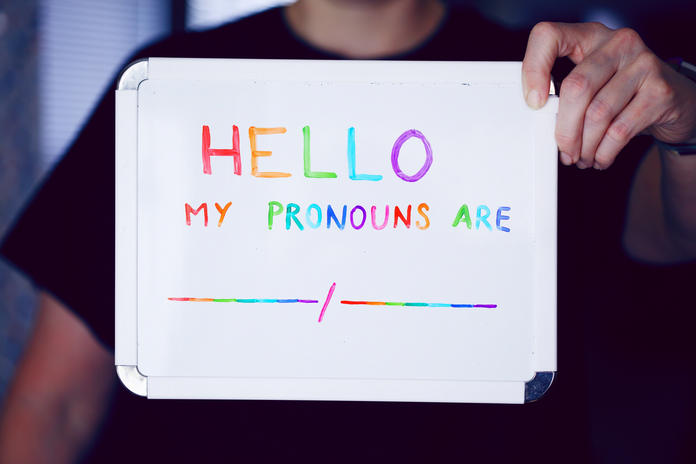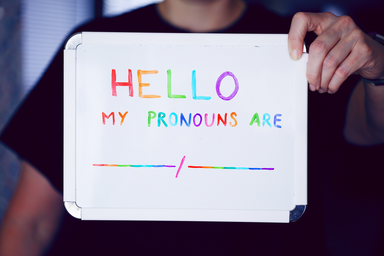Asserting your preferred gender pronouns may not be something that has occurred to you if you are not a member of the LGBTQ+ community, especially if you identify as the gender which you were already assigned at birth.
As DCU prepares to celebrate its annual Rainbow Week, it is important to discuss why declaring your preferred pronouns on social media can be helpful for everybody.
DCU Vice President for Welfare & Equality Dean O’Reilly says that including your pronouns on social media and work emails is all about creating a culture where having different gender identities is normalised. As well as that, it can also avoid confusion and awkwardness when communicating with people you don’t know very well.
“When you go to a conference or something, or on your first day of school, you wear a name tag. You introduce yourself with your name so that everyone knows what to call you. It’s the same thing with pronouns. A lot of people will have their pronouns correctly assumed, but there’s many folks who won’t, so rather than leaving it up to this ambiguity, it’s like an extension of your name tag, so that everyone’s on the same page,” he said.
“It also creates this culture where people understand that it’s not just trans folks who are mentioning their pronouns, so it doesn’t put a target on trans folks who may not be out yet about correcting pronouns. For example, if there’s a person who is not open about their trans identity but wants to make sure that people are using the right pronouns for them anyway, that when they assert that and everyone’s doing it then it doesn’t seem like out of the blue. If the only people doing it are trans folks then it’s a very obvious indicator,” he added.
At the end of the day, it takes very little time to go through your social media accounts and put in what your preferred pronouns are. A quick “she/her”, “he/him”, “they/them” or similar can go a long way in normalising different gender identities and make the internet a much safer space for everybody, thus avoiding awkward or nervous confrontations about the subject.
“It’s about creating a culture where people address each other correctly, and one that is inclusive, welcoming and safe for trans people,” O’Reilly said.



